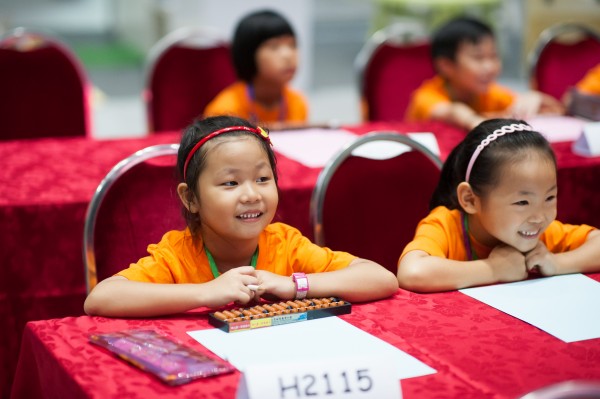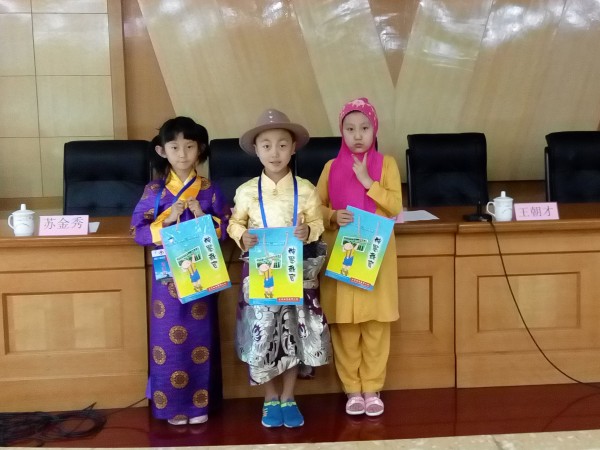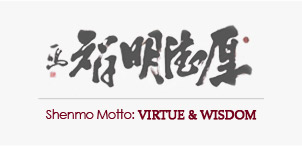SHENMO MOTTO: Virtue & Wisdom
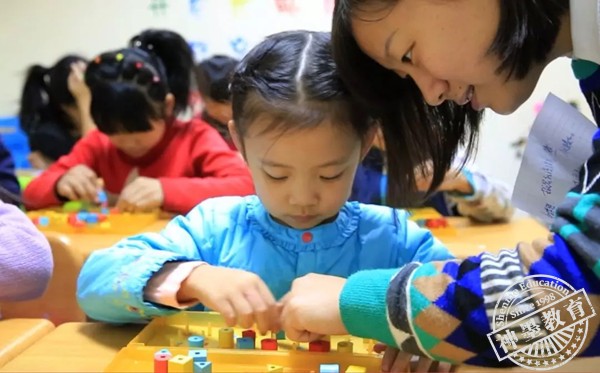
-
Focus Makes Children Happier
2019-05-21 丨
The writer is from the Ministry of culture development

If you ask a child at random about what does he think the happiest thing is, many children may answer: playing mobile phones and playing games. This is precisely the knotty problem that many parents are facing. We all know that learning with interests and happy growth is beneficial to children, but what if children's interest is to play mobile phones and their happiness lies in playing games?

A person with intense concentration can always know what to concentrate on, how long it will last, and what goals will ultimately be achieved. In that way, they can grasp more resources and are easier to be successful. Therefore, cultivating children's active concentration from an early age is something that every parent and educator needs to attach great importance to.
We need to think why children concentrate on mobile phones and games, why they can play games attentively, but often takes a lot of time off for peeing and pooing when doing homework, and why children, including adults, hold the view that playing mobile phones is more interesting and addictive.
The reason is that concentration is divided into "active concentration and passive concentration". Among them, the training of active concentration is a critical factor in the growth and success of people, while the long-term accumulation of passive concentration will make people's concentration decline. However, when someone is concentrated, either actively or passively, they will temporarily ignore a lot of things and feel full and happy.
The core of the game's attraction to people lies in the “joy of harvest”. Through various rewards and upgrading from time to time, people are encouraged to continue playing. The attraction of mobile phones lies in the novel things that evoke people's curiosity. The essence of the two is to stimulate people's passive concentration through external stimulation, which brings happiness.
Such concentration is hugely dependent on the irregular stimulation of the outside world, and it is difficult to take the initiative to control, so once people are interrupted, they will feel angry and sad. In life, when one is interrupted when he is in the moment of active concentration, such as doing exercises, reading, and learning, he may feel okay and think the interruption acceptable. However, when one is interrupted when he is watching a short video or playing a game, he will feel distraught and even raging.
The reason is that active concentration can be controlled consciously, while the passive concentration cannot be recovered once it is interrupted. For example, when one is interrupted while playing a console game, he will not be angry for the interruption because he can save the progress at will and quickly re-enter the "passive concentration" state; however, when one is interrupted while playing an online game, he will be wrathy, because he can no longer return to the prior state, and he will think that this will make his efforts unrequited.
Passive concentration doesn't involve a stop signal. People immersed in passive concentrating is like driving a non-stop car in the expressway, which will only stop by getting crashed. It seems that passive concentration brings happiness, but it is actually an anesthetic and hides serious loss. When the phones are confiscated by parents, many children will cry and make trouble, were they really happy when playing mobile phones?
Silicon Valley in the United States is the "center" of the world's electronic information technology. In the top middle school in Silicon Valley--Waldorf School of the Peninsula, students are not allowed to learn via electric screen before the eighth grade, and 75% of the parents are technology executives working in Silicon Valley. They know that electronic technology can seriously hurt the ability of initiative concentration. Here the children are not depressed and stuffy as a result of the avoidance of electronic screen. On the contrary, as a result of conscious training without interference, they are more persevering and more concentrated, and the learning and entertainment process is fuller and happier compared with other children.
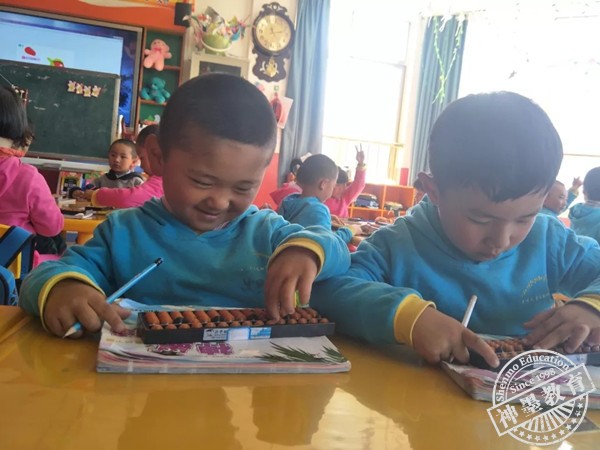

There is no doubt that concentration can bring happiness. We all have the experience of doing one thing attentively and "forgetting everything else". We feel that it may only last a short time, but actually, it has been a considerably long time. We are highly concentrated and relaxed in this process. Although it seems that there is almost no emotional fluctuation, we enjoy this process very much. If the concentration brings success, there will be happiness and satisfaction no matter how significant the success is. However, it is difficult for us to maintain highly concentrated for a long time, because we are often attracted by various "temptations" around us, leading to a passive concentration on other matters.
Therefore, this explains why concentration is the scarcest resource in this era. We all feel the joy of concentration, but it is difficult to have active concentration for a long time in the current era. People are filled with impetuous factors more or less.

A person with intense concentration can always know what to concentrate on, how long it will last, and what goals will ultimately be achieved. In that way, they can grasp more resources and are easier to be successful. Therefore, cultivating children's active concentration from an early age is something that every parent and educator needs to attach great importance to.
For children, attention is the first gateway to intelligence, the foundation of learning, and the basis for persistence, enterprising spirit, and adversity quotient. The concentration is instinctive, and everyone can be concentrated. However, to cultivate intense concentration, it takes a long period of training to transform the hidden nature into the dominant ability. Attention training is a compulsory course for children in this era.
This is also the core training direction of the various courses of Shenmo--enlightening nature to make children more concentrated and happier. Shenmo's school motto is “Great virtue & enlightened wisdom”, in which enlightened wisdom refers to children's concentration training. Intense concentration is beneficial to our mental growth and the learning of knowledge and skills. This is also the origin of the concept--"draw inferences about other subjects from one subject"-- concluded from the courses of Shenmo Abacus Mental Arithmetic and Attention Training.


Let us return to the original topic--what is the happiest thing for children? After all, growth and harvest are happy. The "harvest" brought by mobile phones and games to children is the easiest, which can be obtained from "passive concentration", but such harvest is superficial and harmful.
As parents and educators-- the guide for children's growth, what we need to do is to guide children to actively concentrate on doing one thing to gain success and happiness. We need to start with small things and make good use of various media, such as teaching aids, abacus mental math, magic cubes, painting, calligraphy, music, and musical instruments.
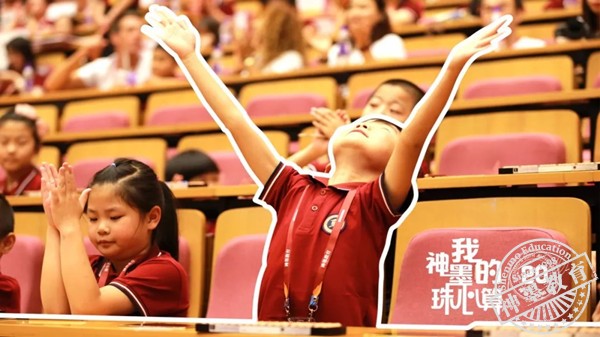

As what the Shenmo Attention Training Course has done – through the teaching methods of equality, respect, trust, appreciation, attention, and motivation, we train our children to have learning abilities and study habits, cultivate their perseverance, and develop an excellent mental model of knowledge-action unity. Children can gain happiness and success via concentration. In that way, their childhood will be full and happy because of their self-discipline rather than an electrical product.
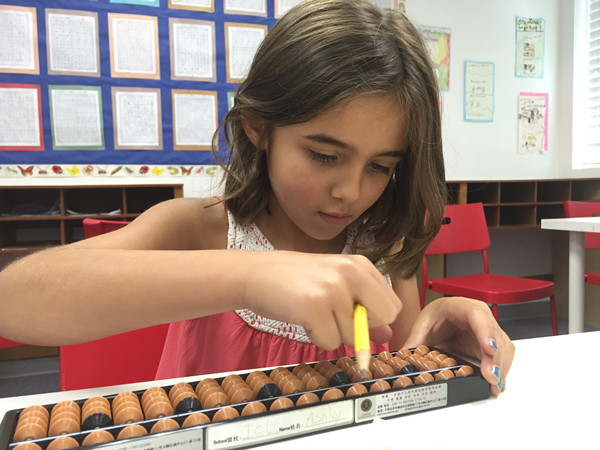
-
NEXT:
The Interpretation of Shenmo’s Core Educational Concept On Aug 02, 2019 >
LATEST

- First Online Shenmo Training for Ru On Mar 29, 2021
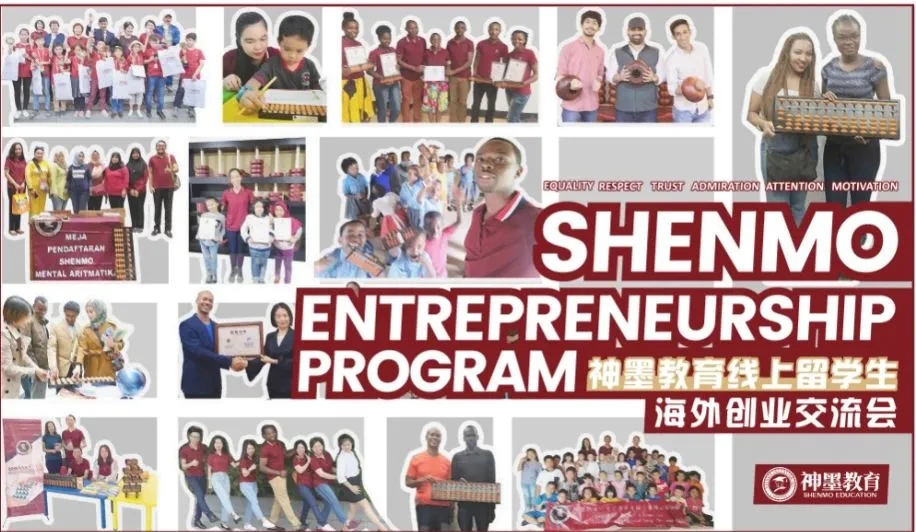
- Online Shenmo Entrepreneurship Exchange Meeting On Mar 29, 2021

- First Shenmo Online Abacus Mental M On Feb 03, 2021
EVENTS
Combination of Traditional Culture and Mo On Jun 02, 2020
Shenmo News:Shenmo Nigeria Abacus Mental On Oct 23, 2019
Shenmo News:The delegation of the 1st On Oct 21, 2019



